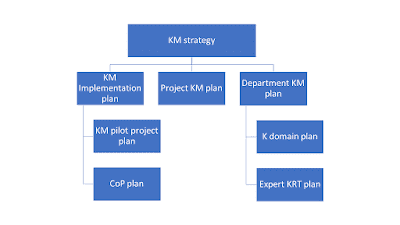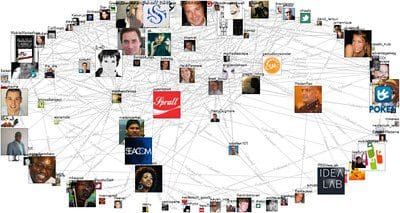
Favorite We all suffer from bandwidth issues in KM – generally due to the deluge of information. Here’s a good principle from the military for dealing with these issues. Information overload by SparkCBC on Flickr The phrase – “Smart push, warrior pull” (described here). is a very useful military principle for
Read More
 Shared by Nick Milton September 16, 2020
Shared by Nick Milton September 16, 2020

Favorite I wrote a blog post yesterday on 4 types of KM plan, and (too late) realised that there were more than 4. Here are another four types. Yesterday’s blog post mentioned the following 4 types of plan, which are all at a fairly high level of granularity. These are:
Read More
 Shared by Nick Milton September 15, 2020
Shared by Nick Milton September 15, 2020

Favorite Knowledge Management plans exist at many scales. Here are 4 of them. KM planning session Implementing KM is a project, and a prject needs a plan. However KM can be implemented at many scales, and many variants of KM plan may be needed. In this post we describe 4
Read More
 Shared by Nick Milton September 14, 2020
Shared by Nick Milton September 14, 2020

Favorite Reports are poor places to keep knowledge. However they do have a role to play in Knowledge Management. Image from wikimedia commonsby user Coolcaesar under CC licence Once upon a time, we relied on reports, papers and books to store our knowledge. This was before the Internet, before networked computers, when
Read More
 Shared by Nick Milton September 11, 2020
Shared by Nick Milton September 11, 2020

Favorite A reprive from the archives – an overview of Connection and Collection as dual components of KM. Image by Marc Smith on Flickr There are two main mechanisms for supporting the flow of knowledge in an organisation – Connecting the people, or Collecting the content. These are sometimes seen
Read More
 Shared by Nick Milton September 10, 2020
Shared by Nick Milton September 10, 2020

Favorite Governments know all about supporting traditional economies. So why are they so poor at supporting the knowledge economy? Image from wikimedia commonsby 401(K) 2012, CC licence A “knowledge economy” is a focus for many many governments in the developed world. A knowledge economy is one “where distinctive know-how is
Read More
 Shared by Nick Milton September 9, 2020
Shared by Nick Milton September 9, 2020

Favorite Peter Drucker said that our task this century is to revolutionaise the productivity of the manual worker. Here’s how KM can help. Assembly Line, from Library and Archives Canada, via Flickr Peter Drucker famously said that ‘the most important, and indeed the truly unique, contribution of management in the
Read More
 Shared by Nick Milton September 8, 2020
Shared by Nick Milton September 8, 2020

Favorite How many times do people miss knowledge because they don’t know it exists, or can’t find it? Image from wikimedia commonsattribution Dg-505, CC licence My guess is that this happens all the time. Someone creates a great knowledge resource, but others don’t know about it, and even if they
Read More
 Shared by Nick Milton September 7, 2020
Shared by Nick Milton September 7, 2020

Favorite It is tempting, when starting KM in your organisation, to set up a Knowledge Management community of practice as a way to demonstrate the value of communities. I suggest this may be a mistake. Of course knowledge management will need a community of practice, but there are three reasons
Read More
 Shared by Nick Milton September 4, 2020
Shared by Nick Milton September 4, 2020

Favorite One the enduring challenges in Knowledge Management is defining effective metrics to measure its value. A promising metric which may fill the gap is the Frequency of Lost Knowledge (FOLK) and it’s partner the Cost of Lost Knowledge (COLK). Image from wikimedia commons In safety management, they talk about
Read More
 Shared by Nick Milton September 3, 2020
Shared by Nick Milton September 3, 2020
![]() Shared by Nick Milton September 16, 2020
Shared by Nick Milton September 16, 2020









